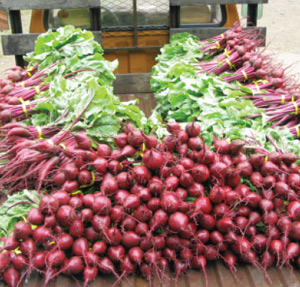Summary
Production guides for organic carrot, lettuce and beet seed
Coordinator: Micaela Colley, Organic Seed Alliance, Port Townsend, Washington
Stakeholders: U.S. organic vegetable producers interested in producing organic vegetable seed
Lack of available quality and quantity of organic seed is recognized as a weak link in organic systems and has resulted in ongoing exemptions to the National Organic Program seed regulations. While organic seed production is a developing industry and viable opportunity for organic growers, there is a lack of available information and educational support on organic seed production methods. Few Extension programs have the knowledge or outreach capacity to provide organic seed support. Extension programs offer at most only conventional seed production guides, many of which are significantly outdated and lack appropriate recommendations for organic producers.
 Organic Seed Alliance (OSA) has released three new publications on the Principles and Practices of Organic Lettuce, Beet, and Carrot Seed Production. The three guides complement OSA’s other educational publications filling a gap in information on organic seed production practices. Access to this information will increase the success of organic seed producers, availability of high quality organic seed, and development of a vital organic seed market.
Organic Seed Alliance (OSA) has released three new publications on the Principles and Practices of Organic Lettuce, Beet, and Carrot Seed Production. The three guides complement OSA’s other educational publications filling a gap in information on organic seed production practices. Access to this information will increase the success of organic seed producers, availability of high quality organic seed, and development of a vital organic seed market.
The objective of the guides is to strengthen a weak link in organics by bridging an information gap in the methodology of organic seed production thereby facilitating increased availability of quality organic seed.
The western region of the U.S. is a global supplier of dry-seeded vegetable seed and a stronghold of organic vegetable production, which strengthens its potential as a prime region for organic vegetable seed production. Carrots, beets, and lettuce are high demand vegetable seed crops which are well-adapted to production in various climatic zones of California, Oregon, Washington, and Idaho. Availability of crop specific information on organic seed production will increase grower’s success and recognition of the western region for organic production of these seed crops.
